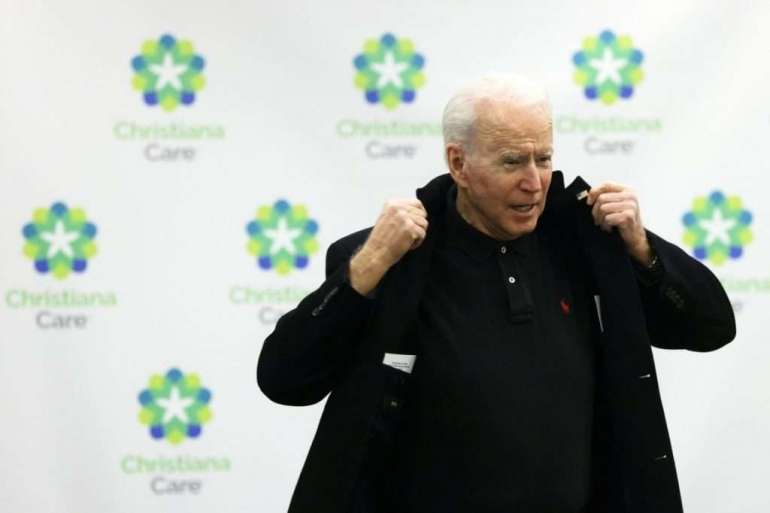Biden’s Covid board in the dark on final vaccine plan

But most of the Covid advisory board, which Biden formed within days of the election as part of an effort to demonstrate that ending the pandemic would be his top priority, will not be briefed on the plan until tomorrow afternoon.
Since November, the 16-member board has often served as the public face for the transition’s pandemic messaging — with members appearing frequently on television and in other forums to discuss the health crisis and reinforce Biden’s resolve to end it.
The team includes high-profile figures like surgeon and New Yorker writer Atul Gawande, top infectious disease expert Michael Osterholm and Rick Bright, a former senior federal health official who became an outspoken critic of the Trump administration’s pandemic response.
The group had played a central role over the last several weeks in developing and debating the range of policies that should be included as part of Biden’s sweeping pandemic strategy.
The decision to keep the plan’s final details closely held came as a surprise to much of the advisory board, according to two people with knowledge of the situation. There was no specific reason given for the board members’ exclusion, the people said, though some members assumed that the Biden team wanted to cut down on the risk of leaks.
A person familiar with the structure said the board’s three co-chairs — surgeon general nominee Vivek Murthy, White House Covid-19 Equity Task Force head Marcella Nunez-Smith and former FDA chief David Kessler — are among the small circle of advisers tasked with finalizing the proposal.
The co-chairs, Rochelle Walensky, the incoming head of the Centers for Disease Control, and Bechara Choucair, the incoming White House vaccinations coordinator, have met daily with Jeff Zients, Biden’s Covid coordinator. Anthony Fauci, the government’s top infectious disease expert and incoming chief medical adviser to Biden, is also intimately involved in the process, the person said.
And while the board members still expect many of their contributions to make it into the final proposal, they won’t know until hours before Biden takes the stage what exactly the strategy will contain — and how those efforts will be presented.
While a smaller group with the co-chairs is hashing out the final details of the plan, Biden has already outlined some of his priorities in broad terms. He is expected to ask Congress to pass a roughly $1.3 trillion stimulus package early in his term that will include funds for states to distribute vaccines, expand testing capabilities and assist schools reopen safely.
The vaccine distribution plan is likely to include partnerships with pharmacies and grocery stores around the country to serve as vaccination sites as well as mobile units to serve rural areas and new standalone federal sites, according to two people with knowledge of the plan.
The transition declined to comment.
In his first 100 days, Biden has vowed to administer 100 million vaccinations and reopen the majority of schools — steep challenges that transition advisers have said will likely require Congress to swiftly approve billions of dollars in new spending. The vaccination pledge has generated fears among advisers and Democrats who worry it is too ambitious given the Trump administration’s trouble-plagued rollout of the vaccine.
The president-elect has also grown frustrated with his broader Covid team in recent weeks, conveying to Zients, and his deputy, Natalie Quillian, that their team was underperforming. Still, Biden insisted on Monday that he had full confidence in his team and that they would meet the goal he set.
“My number one priority is getting the vaccine to people’s arms as we just did today as rapidly as we can, and we’re working on that program now,” he said Monday.
He added: “It’s going to be hard. It’s not going to be easy, but we can get it done.”